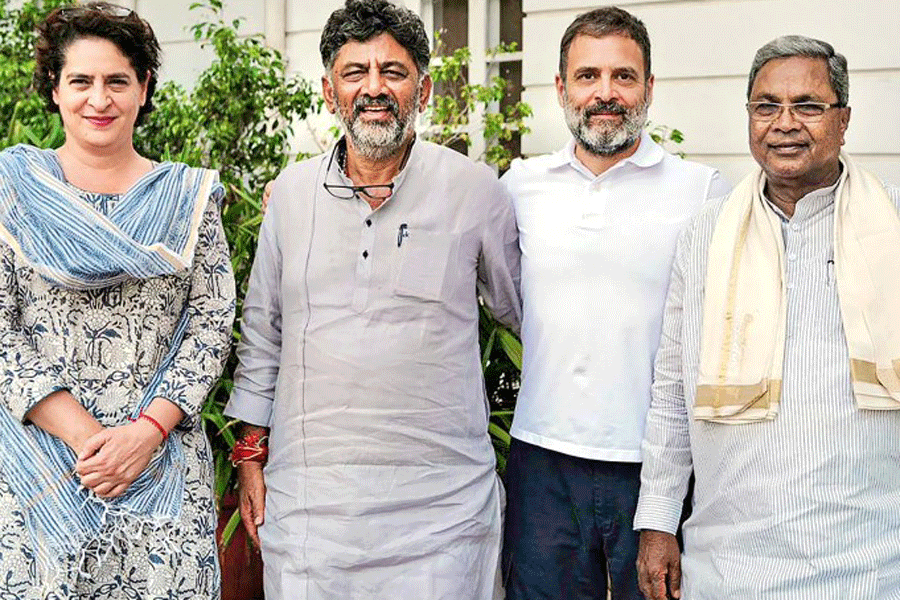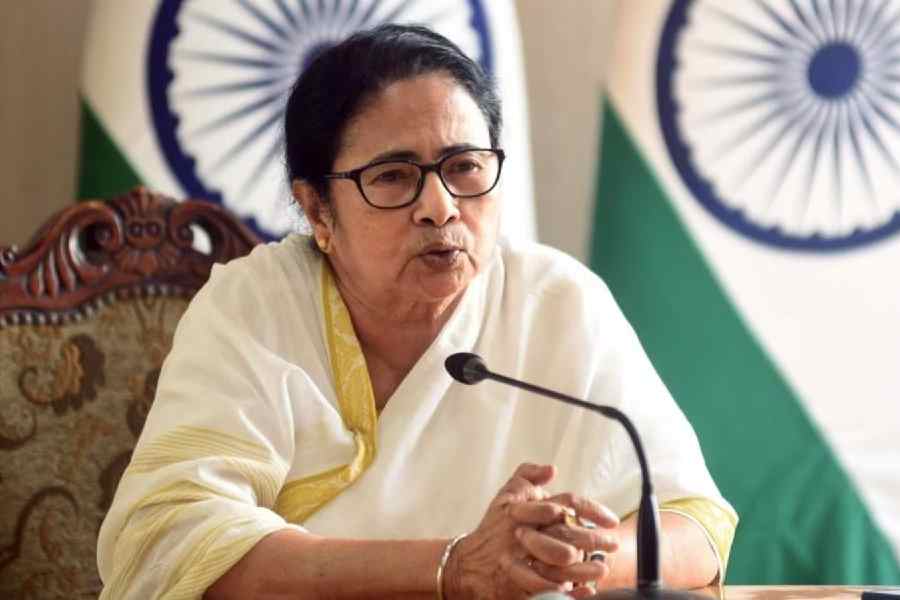The one-to-one contest formula being suggested by the likes of Bihar chief minister Nitish Kumar and his Bengal counterpart Mamata Banerjee to pin down the BJP in the 2024 general elections appears impractical as the Congress has issues with both the criteria and the choice of allies across the country.
While the Congress is clear that it cannot have any understanding with some parties in the Opposition ranks, it also believes that there cannot be a consensus on the basis for calculating who is "strong" where. Top strategists reject the idea of Congress contesting merely 200 seats as suggested by Mamata. "No" was the terse answer when a key strategist was asked if there is any possibility of the Congress contesting around 200 seats.
Even in the 2004 election when Sonia Gandhi was hailed for sewing up a robust coalition to defeat the Atal Bihari Vajpayee government, the Congress contested 400 seats. In the general elections of 2009, 2014 and 2019, the Congress contested 440, 464 and 421 seats, respectively. No matter how much the party leadership is willing to accommodate the regional forces, they cannot dream of a situation where the Congress contests less than 350 seats.
The Congress doesn’t see 2019, when the last general election happened, as a normal election and hence is not ready to accept it as the benchmark. They believe Prime Minister Narendra Modi hijacked the election in the aftermath of the Pulwama tragedy and Balakot surgical strike, rendering normal political factors irrelevant. Also, the nature of political dynamics in some states is such that a one-to-one contest is unthinkable.
For instance, the Congress has already ruled out any alliance with Chandrashekhar Rao’s BRS in Telangana. There is no chance of an alliance with Naveen Patnaik in Odisha and very little chance of a coalition with either Jagan Reddy or Chandrababu Naidu in Andhra Pradesh. Even in the key state of Uttar Pradesh, both the Samajwadi Party and the Bahujan Samaj Party have shown no interest in the Congress.
The Congress too isn’t interested in bending backwards to align with any party beyond the existing allies in Bihar, Maharashtra, Jharkhand and Tamil Nadu. There could be some possibility of an understanding in Jammu & Kashmir with Farooq Abdulllah’s National Conference and with Badruddin Ajmal’s AIUDF in Assam. Even in Bengal, it is difficult for the Congress and the Left to vacate the space for Trinamul because they perceive them as the strongest force against the BJP.
There are practical difficulties as well. For instance, the Congress could not win even a single seat in two consecutive Assembly elections in Delhi where Arvind Kejriwal’s AAP maintained its complete dominance. But in the 2019 parliamentary election, the Congress's vote share was 22.51 per cent against AAP’s 18.11 per cent. Both the parties could not win a single seat. The Congress came second in five seats while the APP came second in only two. Will the AAP agree to give a larger share of seven seats to Congress?
Punjab is even more curious. The Congress lost the Assembly election to the AAP but the 2019 vote share tells a different story. The Congress won 40.12 per cent votes while the AAP got barely 7.38 per cent. Similarly in Kerala, will the Congress and the Left have an alliance to stop the BJP? Not possible. In states like Gujarat and Rajasthan, the Congress didn’t win a single Lok Sabha seat but will it leave a single seat for any other party even as it is the strongest challenger?
In 2009, the Congress was in a direct contest with the BJP in 350 seats. The Congress considers that a more reasonable benchmark even as the sphere of direct contest shrank in 2014 and 2019 to around 260 seats. The Congress believes there are only 140 seats in the country where the regional forces are truly strong and should be left alone to resist the BJP. After Karnataka, if the party does better in Madhya Pradesh, Rajasthan and Chhattisgarh, its flexibility may get further reduced.












